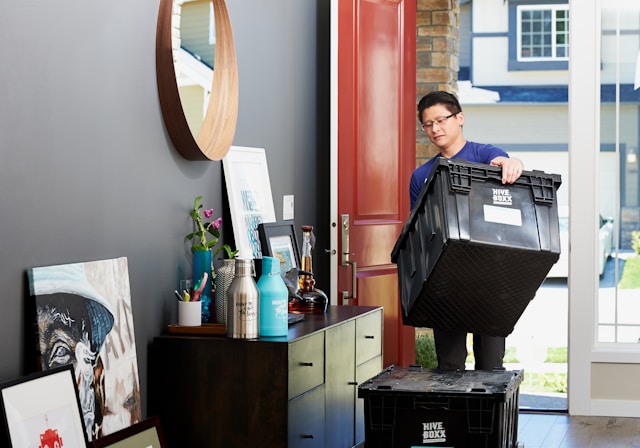Estate cleanouts can be a daunting task, especially when you are dealing with the emotional weight of losing a loved one. The process involves sorting through years of accumulated belongings, deciding what to keep, sell, donate, or discard, and often preparing a property for sale.
However, with some planning and organization, you can make the estate cleanout process much smoother and less stressful. Here are some essential tips to help you through this challenging time.
1. Plan and Set a Timeline
One of the most critical steps in an estate cleanout is to plan. Start by setting a realistic timeline for completing the cleanout. Depending on the size of the estate and the amount of belongings, this process can take several weeks or even months. Break down the tasks into manageable chunks and set specific deadlines for each phase. This will help you stay organized and prevent the process from becoming overwhelming.
2. Assemble a Team
You don’t have to go through the estate cleanout process alone. Assemble a team of family members, friends, or even professional organizers to help you. Having a support system can make the process more manageable and less emotionally draining. Delegate tasks to different team members based on their strengths and availability. For example, one person might be in charge of sorting through paperwork, while another handles the furniture.
3. Categorize Items
Before you start sorting through belongings, create categories for the items. Common categories include:
- Keep: Items that have sentimental value or that you want to keep.
- Sell: Items that are valuable and can be sold.
- Donate: Items that are in good condition but not valuable enough to sell.
- Discard: Items that are broken, damaged, or have no value.
Label boxes or areas in the house for each category to keep things organized. This will make it easier to sort through items and make decisions about what to do with them.
4. Tackle One Room at a Time
Instead of trying to clean out the entire estate at once, focus on one room at a time. This approach will help you stay organized and make the process less overwhelming. Start with rooms that are less emotionally charged, such as the garage or basement, before moving on to more personal spaces like bedrooms and living areas.
5. Handle Sentimental Items with Care
Dealing with sentimental items can be one of the most challenging aspects of an estate cleanout. It’s important to handle these items with care and take your time making decisions about what to do with them. If you’re unsure about an item, consider keeping it for now and revisiting it later. You can also take photos of sentimental items as a way to preserve memories without holding onto the physical objects.
6. Hire Professional Help
If the estate cleanout process feels too overwhelming, consider hiring professional help. Estate cleanout services specialize in sorting, organizing, and disposing of belongings, making the process much more manageable. They can also assist with selling valuable items and arranging for donations. Hiring professionals can save you time and reduce the emotional burden of the cleanout process.
7. Sell Valuable Items
Once you’ve sorted through the belongings, consider selling valuable items that you don’t wish to keep. You can hold an estate sale, list items online through platforms like eBay or Facebook Marketplace, or work with a consignment shop. Selling items can help offset the costs of the cleanout and provide a sense of closure.
8. Donate Unwanted Items
Donating unwanted items is a great way to give back to the community and ensure that usable items don’t go to waste. Many charities and non-profit organizations accept donations of furniture, clothing, household goods, and more. Some organizations even offer pick-up services, making it easier to donate large items.
9. Dispose of Trash Responsibly
For items that cannot be sold or donated, it’s important to arrange for their responsible disposal. Consider dumpster rental from a reputable service provider or scheduling a bulk trash pick-up through your local waste management service. When disposing of items, especially hazardous materials like paint, chemicals, and electronics, ensure compliance with local regulations to protect the environment and community safety.
10. Take Care of Yourself
Lastly, remember to take care of yourself throughout the estate cleanout process. It can be emotionally and physically exhausting, so it’s important to take breaks, get enough rest, and seek support from friends, family, or a counselor if needed. Taking care of your well-being will help you stay focused and manage the stress of the cleanout.
Conclusion
Estate cleanouts are never easy, but with careful planning and organization, you can make the process more manageable and less stressful. By following these essential tips, you can navigate the emotional and practical challenges of an estate cleanout and find a sense of closure and peace.


